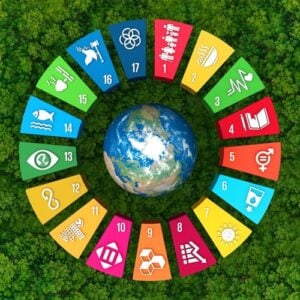The Secretary-General’s annual report, released ahead of the 80th session of the UN General Assembly, provides a candid assessment of the Organization’s efforts amid growing global challenges. Secretary-General António Guterres highlighted the resilience and dedication of UN personnel, emphasizing that even in extraordinarily difficult circumstances, the UN must continue striving toward a better, more equitable world. The report underscores the Organization’s commitment to delivering humanitarian assistance, peace, and sustainable development despite mounting obstacles.
In 2024, the UN coordinated a $50 billion appeal to meet the humanitarian needs of 198 million people, mobilizing $25 billion to provide life-saving assistance to 116 million individuals across 77 countries. These programs supported populations in the Horn of Africa, Sudan, Yemen, Ukraine, and the Occupied Palestinian Territory, as well as areas affected by natural disasters, including earthquakes, droughts, and floods. The year, however, came at a tragic human cost, with 373 UN aid workers killed, marking 2024 as the deadliest year on record for UN personnel, particularly in Gaza. Guterres paid tribute to their sacrifice, reaffirming the UN’s commitment to protecting the world’s most vulnerable populations.
Peace and security remained central to UN efforts, with diplomatic interventions aimed at protecting civilians and advancing peace processes. In Syria, the UN engaged stakeholders to de-escalate violence and prevent regional spillovers. In the Occupied Palestinian Territory and Lebanon, the UN facilitated humanitarian access, reduced hostilities, and supported civilian protection. Efforts in Sudan and Abyei focused on conflict prevention, peacebuilding, and the promotion of gender equality, supported by over $116 million from the Peacebuilding Fund and partnerships with regional organizations such as the African Union.
The 2024 Summit of the Future marked a pivotal moment for multilateralism, producing the Pact for the Future, which calls for enhanced diplomacy, conflict prevention, climate action, and accelerated progress on the Sustainable Development Goals (SDGs). The Summit also adopted the Global Digital Compact, advancing a safe and inclusive digital future, and the Declaration on Future Generations, embedding foresight in policymaking. These initiatives aim to strengthen global governance, ensure equity for developing countries, and renew multilateral cooperation.
Human rights and sustainable development continued to guide UN actions. In 2024, the Organization focused on eliminating violence against women and girls, empowering marginalized communities, and ensuring women’s participation in peace processes. Human rights were integrated into responses to conflict, migration, climate change, and digital governance, promoting protection, accountability, and inclusion. The UN also supported 170 countries in implementing climate commitments and low-carbon transitions while advocating for reforms to close the SDG financing gap and ensure vulnerable countries can achieve the 2030 Agenda.
The report highlights the unwavering dedication of UN staff working under extraordinary risks, condemning attacks on civilians, hospitals, schools, and aid workers that undermine international law. Despite these dangers, personnel continued their mission with courage and resilience. Guterres reaffirmed that the UN will persist in its efforts to achieve peace, foster sustainable development, and uphold human rights, embodying the Organization’s commitment to serving humanity with integrity and compassion.






